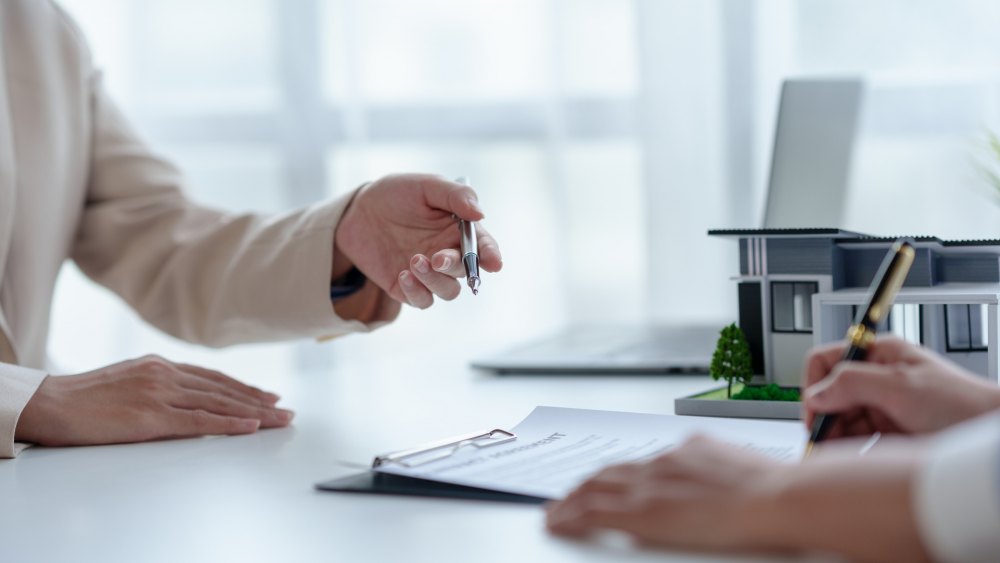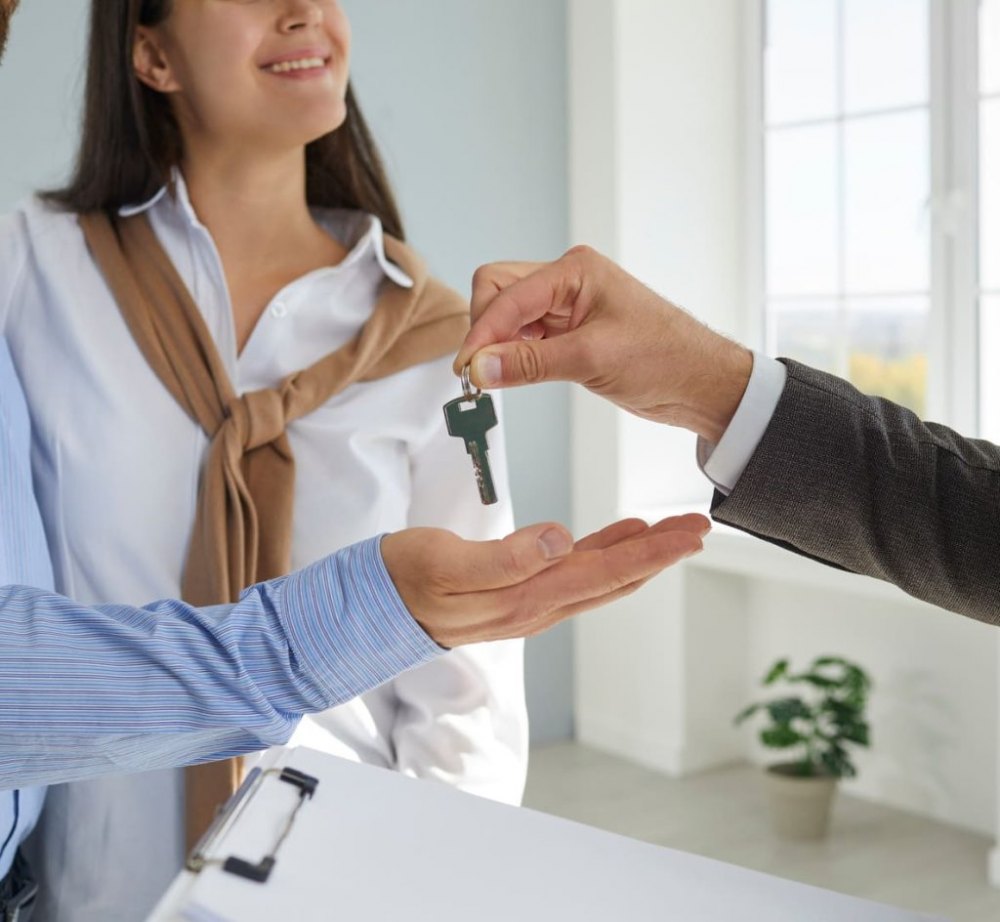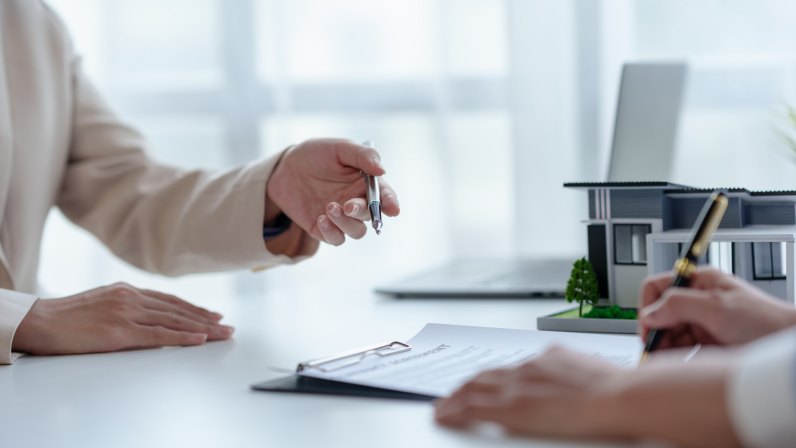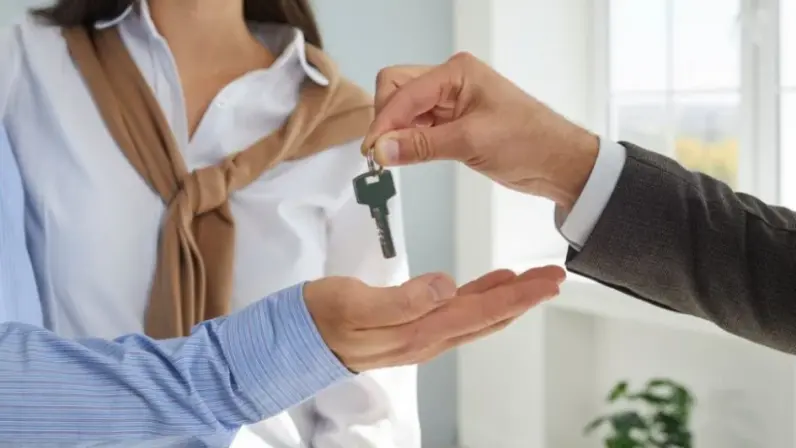
THE GUIDE TO BUYING A PROPERTY ON COSTA DEL SOL
We could summarize the main steps as follows, but later on, we will delve into the details of each of them so that you can understand all aspects of the process.
- GET YOUR NIE NUMBER IN GOOD TIME
- PRE-AUTHORISED LOAN IF NEEDED
- ASK A UNIKK HOME AGENT TO SHOW YOU THE PROPERTIES
- RESERVATION
- PRIVATE CONTRACT
- COMPLETION OF THE TRANSACTION / DEEDS
- THIS IS WHERE THE STORY UNDER THE SUN CONTINUES.
…LET’S GET IN DEEP
GET YOUR NIE NUMBER IN GOOD TIME
NOTE! You can make an offer on an apartment and pay the deposit / reservation fee even if you don’t have your NIE yet.
If you want things to go as smoothly as possible from the start, get your Spanish NIE number well in advance. The NIE Number – Foreigner Identity Number – is an identity number issued in Spain to foreigners who are operating in Spain for economic, professional, or social reasons. NIE is an identification number used in many contexts (Número de Identificación de Extranjero). Applying for an NIE on Costa del Sol is easy, but it’s worth setting aside some time and patience to go through the old-fashioned process. For example, you can’t pay for your NIE at the office where you do your business, but instead, you will receive the payment details, go to your local bank
and pay the NIE fee of around €13 at the bank and then take the paper receipt back to the office where you got the payment instructions.
Go to the website below and fill in the form. You will receive further instructions by email.
https://sede.administracionespublicas.gob.es/
You can also apply for an NIE at the Spanish Embassy in your home country. Below is the link:
https://www.exteriores.gob.es/es/EmbajadasConsulados/Paginas/index.aspx
If you wish, you can authorise a UNIKK HOME Properties partner lawyer to apply for an NIE on your behalf. This will save you time and let you get the number a little faster. An NIE with a lawyer’s authorisation and a service charge will cost you around €100 to €150 in total.
An NIE is always required when dealing with any legal or financial matter in Spain, whether you are registered in Spain or not. To buy a home, open a phone line, open a bank account, sign a long-term lease or buy a car, you will always need your NIE. Once purchased, the number remains the same and there are no other costs. Please note that you must keep the original stamped NIE certificate. If you lose it, you will have to repeat the whole application process, even if the result is an identical piece of paper with the same number.
CHOSE YOUR PROPERTY
Explore the UNIKK HOME portfolio
- Take a look at our homes for sale: https://unikkhome.com/properties
- Once you have selected the suitable properties, book flights / arrange a property viewing with our agent, and our agent will schedule the viewings so that you can view several properties in succession if you wish. Our real estate agent can meet you at the airport and, if your flight is during the day, you can visit a few suitable properties already on the first day. Of course, you can drive yourself around Costa del Sol, but at UNIKK HOME, we are always happy to take you on board, so you can concentrate on the scenery and buildings while we take care of driving and navigating to your destinations.
- Get to know our agents and find the best real estate agent to help you find the perfect property to buy. Our service is completely free for buyers. Our team speaks more than 15 languages.
- Please note that our agents can arrange private viewings of any property, even those not listed by us. We work with all real estate agents and can arrange viewings and keys to any property for sale. Many people may think that if they contact the agent who listed the property, they will be able to get discounts, etc. This is not the case. The procedure is very clear among Costa del Sol agents. All you need is one experienced and well-connected UNIKK HOME agent.
- Once you’ve found the property you want, our real estate agent will negotiate the offer with the seller on your behalf. We strongly recommend using a lawyer to ensure that all the important points of the transaction are covered in the deed, NIEs are applied for, and property registrations are handled smoothly. You can get the services of a lawyer at a reduced price through us. You can also authorise a lawyer to sign the deed at the notary’s office on your behalf if you return home before the notary can be booked for the transaction.
COSTA DEL SOL JOINT SELLING MODEL: The same property on different agencies portals
UNIKK HOME serves buying customers free of charge. The commission is paid by the seller.
Many of our customers want to buy a home from UNIKK HOME, because as a UNIKK HOME customer, you can enjoy a wide range of benefits and discounts.
Due to the joint selling model, many of our customers have been surprised by the fact that the buyer is not free to decide which agent to go through in the end.
Here’s an example:
A UNIKK HOME agent shows the customer several properties to buy and suggests additional properties for the next day. The buyer may click on these areas and properties online in advance and be in contact with other agents who are selling the same properties through joint selling. The agency that first registers the customer and arranges a viewing of that property is the agency through which the customer will purchase the property if the customer does choose to purchase.
In many countries, a customer can anonymously view various properties, but on Costa del Sol, the seller is always informed of the first and last name of the customer who is coming to view the seller’s property with the agent. If the customer has already been in contact with another agency and the other agency has already registered the customer to view the property, the transaction can no longer be handled through UNIKK HOME, even if the customer expressly wishes to do so, in order to enjoy UNIKK HOME’s numerous customer benefits, and this will come as a surprise to many foreigners. This practice has been created to prevent different agencies from bringing the same customer to a property the customer has already visited with another agent.
PURCHASE OFFER / RESERVATION
You can make an offer to buy even if you don’t yet have your NIE or a loan promise. Moreover you can make and offer and reserve a property even before checking all the documentation because,
an offer with a reservation deposit is just to take the property off the market.
The offer and the deposit is to show the owner your commitment and interest and avoid the property being purchased by someone else during the negotiations. Your offer can be subject to any condition you require, such as successful due diligence or securing the mortgage. For example if you stipulate your offer is conditional on documents verification and during the due diligence any problem arises you can withdraw your offer and have your deposit back. On the other side if you state your offer is subject to mortgage approval and eventually you are not granted the mortgage you can cancel the purchase operation and get the deposit refund.
The reservation deposit amount, which will be set against the full Sales Price agreed by the parties, can be 1% of the value of the property, or 5.000€, or even higher if the parties agree on different conditions. The deposit is usualy paid into the agency’s account or the buyer’s lawyer account, and it is held in custody for the parties of the operation until completion of the purchase and sale by signing of the notarial title deed.
If there are other interested buyers, the seller may prefer an offer where the buyer already has the mortgage and financing in order.
With UNIKK HOME you can make your offer and reservation remotely.
An offer must include at least these items:
- Price
- Payment method
- The amount of the deposit and whether and in what circumstances it will be repaid
- Possible conditions (mortgage, home inspection)
- Whether the sale includes the furniture (the agent will make a list of the furniture and its value), or any anexes to the property (park lot or storage room).
Once the buyer and the seller have agreed on all the conditions, and the deposit has been made, the property is taken off the market and we can focus on the further steps to conclude the operation.
NOTE! When buying a home on Costa del Sol, it’s a good idea to use a lawyer to draw up the deeds to make sure everything goes according to plan. Lawyers normally charge 1% of the purchase price.

DUE DILIGENCE
The real estate agent will explain you all the details of the property and will provide you with all the documentation related to the property.
If you want, you can also use your own lawyer to help you.
It is important to check whether the property is mortgaged or has any outstanding bills, such as council tax or condominium charges.
If such encumbrances are found, they must be clarified before the transaction is concluded.
If there are any debts related to ther property, the seller must provide the proof of payment or another option is to deduct the amount of the pening invoices from the purchase price, leaving the buyer to make the payments.
So, even if the property is mortgaged or has debts, it is not a problem as long as you know this in advance, since all the pending balances with the banks or other creditors will be set at the notary.
Common required documentation to be prepared at this stage is:
- Nota Simple (updated land registry extract).
- Electronic cadastral certification or cadastral reference.
- Latest IBI and Garbage receipts and confirmation of being up to date with payments or indication of debt for retention of the sale price if applicable.
- Certificate from the Community of Property Owners confirming payment of fees and special assessments (at this stage a simple confirmation is enough since the final Certificate will be issued days before the deed signature).
- Energy Efficiency Certificate and its registration with the Andalusian Government.
- First occupancy license.
- Last electricity bill.
- Last water bill.
- Last gas bill.
- Inventory (in case the property is sold with furniture).
- Pending mortgage amount (if appliable).
Appraisal of a property
The homebuyer can have the property inspected by an official evaluation company. This will give you a reliable picture of the condition of the home, the level of construction, and the asking price. For the inspection, a fee will be charged according to the value of the apartment. The evaluation company will compile the information about the home in a special book, which will be kept by the homebuyer.
The bank will carry out an additional appraisal if you apply for a loan. The bank’s appraisal is carried out by an independent firm. Costs are paid by the buyer. The cost of this bank-approved valuation is between €300 and €2,000, depending on the size of the property.
The appraisal takes into account the condition of the property, the surface area, the neighbourhood, and the price. The loan from the bank will be proportional to the valuation of the home. Often, the price estimate is slightly lower than the market price.
PRIVATE PURCHASE CONTRACT
Once the seller and the buyer have agreed on the price and the terms of the sale, and the due diligence is ready, it is time to secure the opertation and sign the Private Purchase Contract (“Arras”, they call it in Spain).
In common Spanish practice, a Private Contract (Contrato Privado or Arras) is singed approximately 1 month after the reservation deposit, but this term can vary on the complexity of the transaction and of the due diligence, from a minium of 2 weeks to a maximum of 2 months after the reservation. The next step afer the PPC will be the signature of the final public deed of sale (Escritura).
The Private Purchase contract sets out again all the terms and conditions of the sale and is legally binding, involving and additional downpayment of 10% to 30% of the purchase price that the parties agree on.
This downpayment is usually between 10% and 30% of the value of the property and the agreement between the parties, and this time it is paid to the seller’s account.
After the signature of the Private Purchase contract, both parties are bound, and it is very difficult for the buyer to withdraw from the transaction and receive a refund of the amount paid. Similarly, it is challenging for the seller, as if he was to withdraw from the sale, he would have to pay a penalty and refund the buyer double the amounts received.
The PPC can be signed by the buyer in person or remotely, or by his spanish lawyer with a Power of Attorney document.

DEED OF SALE
After the private contract has been signed, the buyer and seller sign the Public Deed of Sale (“Escritura”) at a notary’s office. Both the buyer and the seller must be present in person or represented by a lawyer through a notarised Power of Attorney.
Receipts for the previous year’s IBI property tax on the property and proof of the fees paid must also be brought along.
The public deed of sale is checked by a notary and all the terms of the sale are recorded in it. The notary’s duties include certifying the formal authenticity of the deeds and acting as a witness when the deed is signed. The notary must also ensure that the parties to the sale understand the content of the document. In Spain, deeds are written on paper, and each page of the deed must be signed on both sides by the buyer, the seller, and the notary. The notary keeps the original document and gives copies of the deed to both the seller and the buyer. The notary confirms the legality of the sale with a signature. You should ask for a copy of the new Escritura as soon as you have signed it. You can usually get it while you’re waiting.
The documents are then submitted to the land register for title registration, which usually takes time. A recorded and stamped copy of the original deed from the land register can normally be obtained within a few months of the date of signature of the Escritura.
The buyer must pay the title registration fees within 30 days of the sale. The notary’s fee is calculated as a percentage of the purchase price and is generally paid by the buyer, as well as other transfer costs, which we will descripe later.
If there is already a loan on the property you are buying and you want to redeem it or transfer it under your own name, this will only be done by a notary at the time of concluding the sale. Representatives of the banks will also be present, with whom a solution must have been negotiated in advance. If there will be a mortgage on the property, it will be attached to the Deeds with the related conditions.
You should also read the terms of the mortgage at the notary’s office and check that, for example, the interest rate and payment schedules are as agreed. You should take time to read the Deeds and, if possible, ask to read the text in advance of the signing.
If the buyer is not a resident, they must be able to prove to the notary where the funds needed to buy the home were obtained. If the money has been transferred from abroad to Spain, they must have a certificate from the bank stating that the money was transferred from abroad specifically for the purpose of buying a property.
Real estate owned by non-residents and classified as second homes is subject to different taxation compared to owner-occupied residential properties. That’s why some regular taxes may arise for property owners, particularly non-residents, when selling their second homes in Spain. The buyer is responsible for withholding taxes on behalf of the seller, pay them and providing the seller with a receipt.
Resident or non-resident seller?
When buying a property in Spain, you should always consider who you are buying from (the seller’s residence status).
Whether a person is Spanish or foreign, whether one or both parties to the sale are foreigners, and whether or not they have residencia, all affect the taxation and notarisation of the sale.
If you buy a home from a person who is not resident in Spain, the notary must withhold 3% of the purchase price as an advance tax (IRNR income tax for non-residents), which must be paid to the authorities. This amount is an advance tax withholding to be made by the seller from any capital gain. The withholding must be made even if there is no actual profit from the sale.
If appliable, the taxpayer, i.e., the seller, will file a proper tax return at the end of the transaction in order to receive a full or partial refund of the tax withheld. The buyer does not have to worry about anything other than withholding this tax and paying this share into the tax office’s account. Before signing the Deeds, the notary must know how the payment will be handled.
The most convenient way to do this is to sign a cheque with 3% of the transaction amount going directly to the tax authorities. This way, the matter is settled immediately and the buyer does not have to think about it any further. This withholding is not required if the seller has owned the home for 10 years before 31 December 1996. Withholding is only made when the seller is not a resident.
OTHER COSTS IN ADDITION TO THE PURCHASE PRICE
7% TRANSFER TAX The transfer tax must be paid within 30 days of the signing of the official deed of sale. It can also be paid at the time of purchase.
1% LEGAL SERVICES (1% + VAT 21% of the purchase price)
0.25% TO 1% NOTARY FEES AND REGISTRATION FEES depending on the purchase price.
Example of a pre-owned property purchase in Spain
A pre-owned property in Spain with a purchase price of €500,000
Purchase price = €500,000
Transfer tax 7% = €35,000
Legal fees 1% (+VAT 21%) = €6,051
Notary and registration fees 0.5% = €2,500
Total €543,551 (other costs €43,551)
BUYING A NEW BUILD ON COSTA DEL SOL
The sale of new developments often starts before the project has been granted a building permit. This allows the developer to test the market and the attractiveness of the property. Processing times for building permits vary quite a lot depending on the area in which the plot is located. In Marbella, you may have to wait longer for building permits; in the Mijas area, permits are often obtained more quickly; and in Estepona and Benahavis, you can move forward with permits on a much faster schedule.
Buying a new home on Costa del Sol is just as safe as anywhere else. There are guarantee schemes in place, which are designed to ensure that the project progresses and is completed on schedule.
The process is similar to the re-sales properties one. The purchase usually starts with a reservation deposit of a fixed amount from 5.000€ to 15.000€, depending on the price of the property, paid either into the developers account of the real estate agency or the law firm’s client funds account. Depending on the contract, the reservation fee can be refundable or non-refundable if you cancel the reservation.
After the due diligence process a Private Purchase Contract is signed between the buyer and the developer and the buyer pays an additional agreed amount, usually 10% to 30% of the value of the property. The reservation fee already paid will be deducted from this amount.
As the construction progresses, the next instalment is paid, e.g. 20%. The instalments for new properties on Costa del Sol can be back-heavy or spread out over time and the construction. For the instalments that made according to the completion timeframe, the developer must provide the buyer with a bank or insurance guarantee in accordance with the law as well as with completion certificates of the established building stages. This payments distributed during the construction can usually sum around 20% – 40% of the value of the property.
The pending balance will be paid at the notary’s office when the construction is finished and the keys handed over to the new owner. This final payment ranges between 50% and 70% of the property.
We recommend that the buyer negotiates the contract in such a way that a deposit of €5.000 to 30.000€ is left in the client funds account in the formal deed of sale in case there are still some minor or major unfinished works on the property. These are to be carefully recorded and documented. When all the remaining finishing touches have been completed, the amount is released from the client funds account and paid directly to the developer. This will give the finishing touches a nice speed boost without compromising on quality.
When considering a purchase of a new development unit it is very important to ask for the Payment Terms where you will see all the established payments schedule.
In addition to the purchase price of a new property, the buyer must pay 10% tax (VAT) on the purchase price, notary and registration fees of 0.25% to 1% of the purchase price, and a Stamp Duty fee of 1.2% of the purchase price.
Example of a new built purchase in Spain
A new construction property in Spain with a purchase price of €500,000
Purchase price = €500,000
Tax 10% = €50,000
Legal fees 1% (+VAT 21%) = €6,051
Notary and registration fees 0.5% = €2,500
Stamp duty 1.2% = €6,000
Total €564,551 (other costs €64,551)
WHAT TO CONSIDER WHEN BUYING A LUXURY PROPERTY IN SPAIN
On the Costa del Sol, you can buy and own a property for up to €700,000 without having to pay Spanish property tax on it. The tax is graduated, with assets over €10 million subject to a tax of up to 3.5% of total assets in Spain.
If a couple legally resident in another country buys a property worth €1,400 000 with a 50/50 ownership, their individual property in Spain will be €700,000. On top of this, they may each have a further €300 000 in assets, which means €2 million in total. If this is exceeded, property tax is payable on the excess and is always charged on the last day of the year.
If a person is registered in Spain and/or stays in Spain for a fairly continuous period of more than 183 days, they are considered resident and all their assets, not only in Spain but also elsewhere, for example their property and securities in their original country, are subject to property tax.
When buying a more expensive property, careful tax planning can save you money. For example, you can buy a property in the name of a foreign company owned by a person and rent the property from the company for your personal use. Property tax is only levied on individuals. Unikk Home has a network of several tax advisers. We are happy to help with these matters and direct you to the right person.


